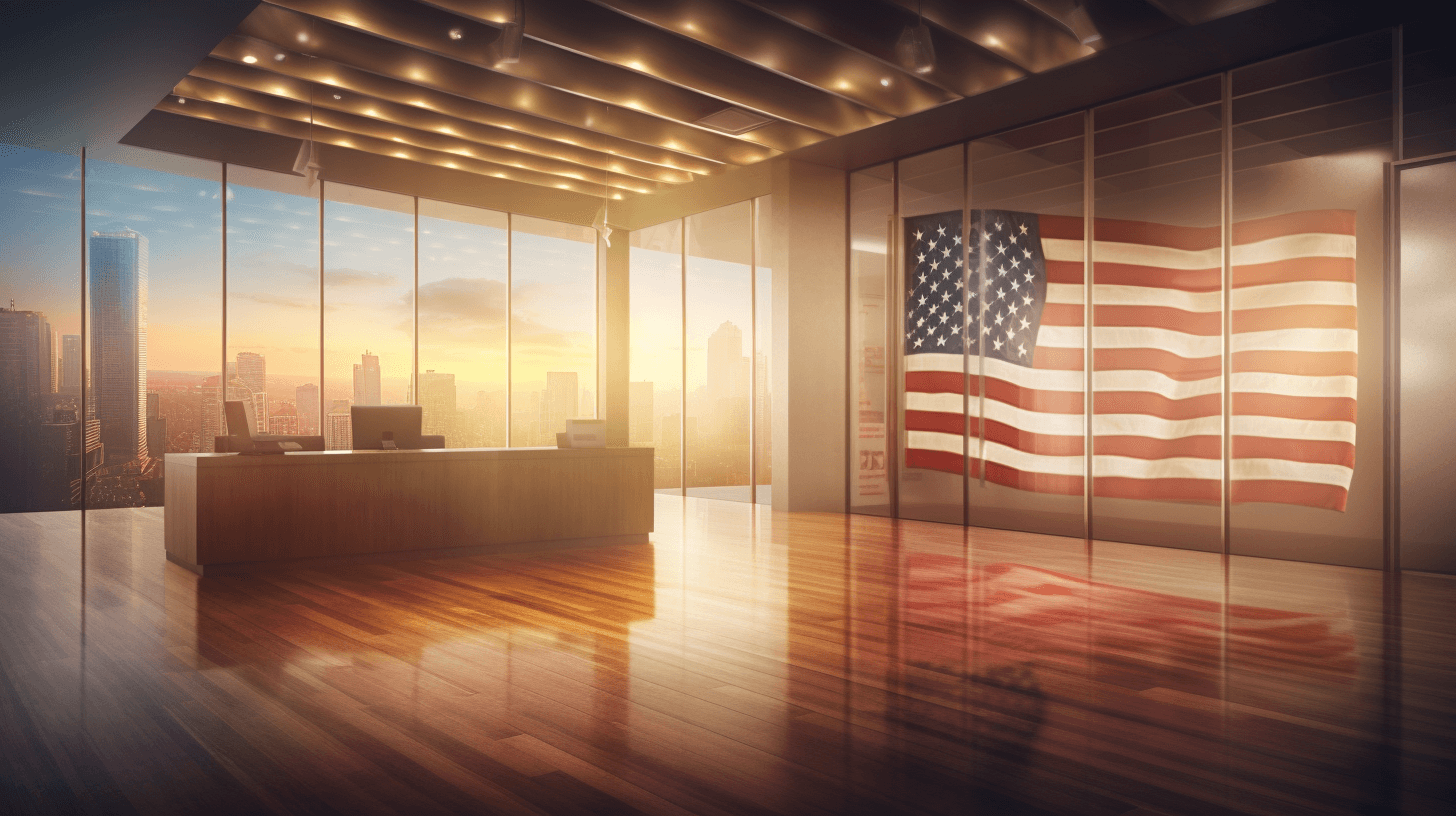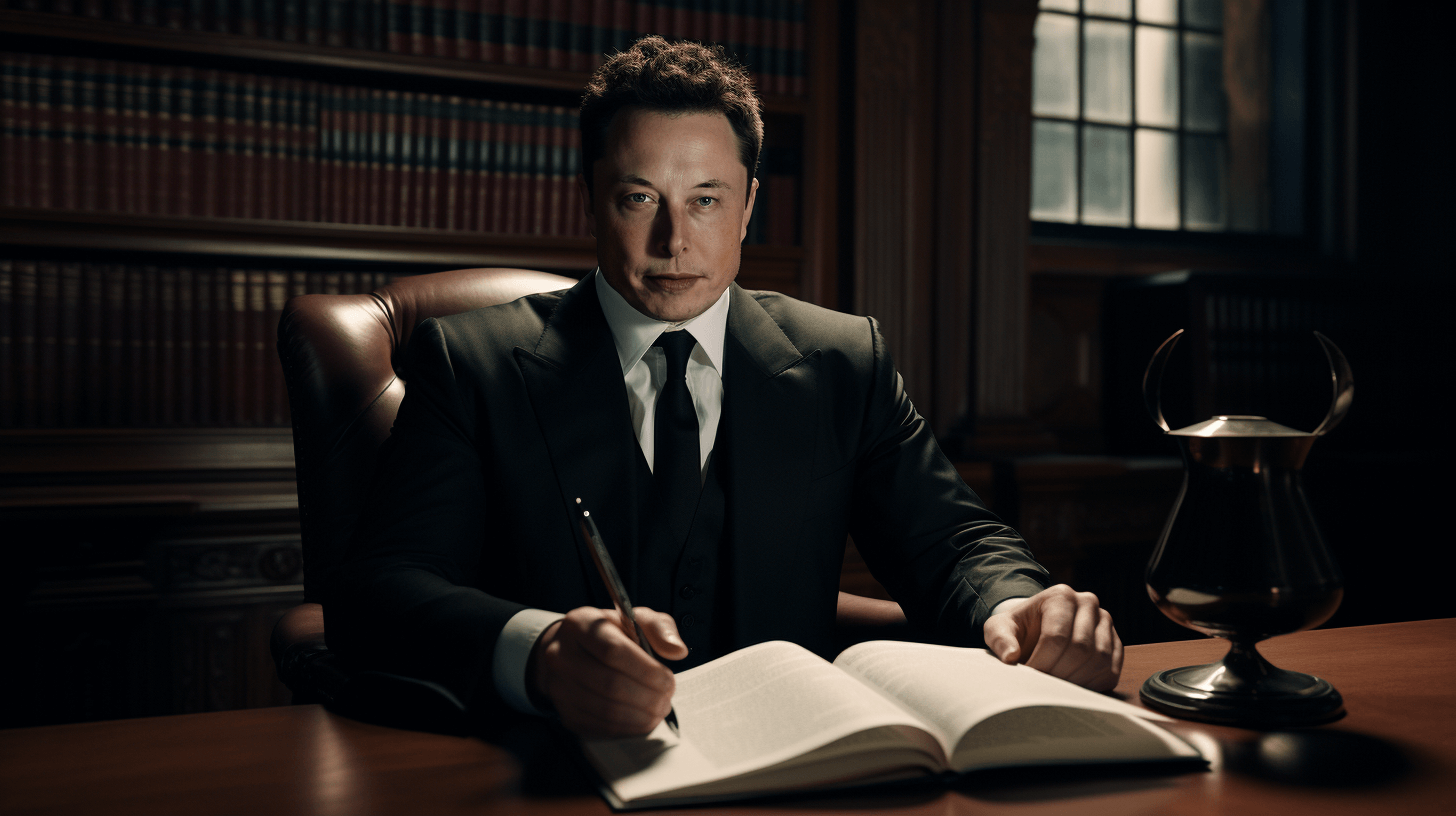⚖️💥 Jus-tis dem Stay Bak Employa Fo Strike Wahala 🏛️👩⚖️
Da Suprem Court wen rule on Top Tursday say da fedral labor law no cover da union from liabilty fo da wahala wey happun durin strike, an state court go come ansa all di kwestion of who dem go charge.
Da plenty peeps wey join heds say di action wey local Teamsters union take durin da strike no even get small protection unda federal law cause da union take some kine “action wey go cause wahala” to da employa property “instead of tryin fo help.” 🚛💥🔥
Da decision, wey Justice Amy Coney Barrett write, had da support of Chief Justice John G. Roberts Jr. and Justices Sonia Sotomayor, Elena Kagan, and Brett M. Kavanaugh. 🖋️👩⚖️
Three conservativ justices wen support more wide range opinions. Only one justice, Ketanji Brown Jackson, no agree. 🏛️👩⚖️👨⚖️
Some legal kine peeps don talk say one loss fo da union go discourage da workas from striking, cause e go make da union dey liable fo losses wey da employa get durin work stoppage. 🚫💼💰
“Definitely e go cause more lawsuits wey go cost plenny fo resolve against labor unions,” Charlotte Garden, one law professah from University of Minnesota wen talk. Professah Garden say though, say da decision no discourage striking action as e suppose to be. 🎓🏛️💼💸
Some oddas say da ruling neccessary fo stop workas from intentional damage to employa’s property, wey no get protection unda federal labor law, an dat right fo strike no dey in danger cause of dis kine limits. 🚧🚫💥
“Losses from intentional damage to property no dey part of striking,” Michael O’Neill from da Landmark Legal Foundation, one conservativ legal advocacy group wey submit one brief for dis case wen talk. As e be, Mr. O’Neill say, da law no protect workas or unions from dis kine damage. 🏛️💥🛠️
Da case, Glacier Northwest v. International Brotherhood of Teamsters, No. 21-1449, get workers wey belong to union for one concrete mixing an pouring company wey walka out from work during contract negotiations, leaving wet concrete inside their trucks. Da employa say e get plenty money loss cause da concrete wey dem abandon no dey usable. 🚛👷💥💸
Da union say e take reasonable steps fo avoid damage to da employa’s property, as federal law require, cause workers keep their trucks running as dem dey walka out from work. This make da company able fo dispose da concrete without damage to da trucks. Da union talk say da loss concrete be like spoilage of one product, wey unions no dey typically held liable fo. 🚛🏗️💼💥
At issue na two main kwestions. Da first one na procedural: whether da case fit move go state court, as employas generally prefer. Or whether da state court — for dis case, Washington — suppose step aside make National Labor Relations Board, da federal agency wey dey in charge of labor disputes, handle am. 🏛️⚖️💼🗂️
Da second kwestion na about which kind economic damage dey acceptable during strike, and which one amount to vandalism of property or equipment, which no get protection unda federal labor law. 🏗️💸💥🛠️
Da two issues dey linked cause unda legal precedent, da labor board suppose elbow state courts wen da strike activity dey at least “arguably protected” by federal law. 🛠️🏛️🤜⚖️
Da Supreme Court rule say da union’s actions during da strike no dey even arguably protected cause da spoilage of da product no be just indirect result of da strike. Instead, “da drivers prompt da creation of da perishable product” an then wait till da concrete dey inside da trucks before dem walka out from work. 🚛👷💥🏗️
“E dey so, dem not only destroy da concrete but also put Glacier’s trucks in wahala,” da majority opinion talk. E send da case back to Washington State court fo make dem litigate am. 🏛️🚚💥🔨
Dis decision, wey fit cause unions fo reconsider striking or take more cautious approach wen perishable product fit get wahala, follow one series of rulings wey look like dem dey reduce da power of unions and workers. 🤔⚖️💥🏗️👥
Da court rule for 2018 say companies fit stop workers from collectively bringing legal actions against their employers, even though da National Labor Relations Act protect workers’ rights to engage in so-called concerted activities. 🏛️💼👥⚖️
For da same year, da court rule say public-sector unions no fit make nonmembers pay fees wey help fund bargaining and other activities wey unions dey do on their behalf. 🏛️💼👥⚖️
For 2021, da court say one California regulation wey give unions access to agricultural employers’ property for recruitment na unconstitutional. 🏛️💼👥⚖️
For interviews, union leaders talk say da ruling go further tilt one already uneven playing field toward employers, an say often na not strike itself but da threat of strike wey help unions win concessions. “Without da threat of strike, you no get small leverage in negotiations,” Stuart Appelbaum, da president of da Retail, Wholesale and Department Store Union, wey don organize successful strikes, talk. 🎤🗣️👥💼
Mr. O’Neill’s group, da Landmark Legal Foundation, argue say one ruling against da employer fit risk da labor peace wey da National Labor Relations Act enact to assure, “putting workers an da public at risk” by essentially blessing acts of vandalism an sabotage. 🏛️👨⚖️💼⚖️
Unions an workers often plan strikes to exploit employers’ vulnerability — like for example, Amazon workers walka out during da holiday season — an rely on surprise to maximize da economic wahala dem inflict, an therefore da leverage da union gains. 🛍️🎄💼💥
For near future, unions wey dey think about strikes or already striking, such as unions representing Hollywood writers or United Parcel Service workers wey their contract go expire dis summer, may need to take more precautions to protect demselves from legal liability. 🎬✍️📦💼🔨
Dis kind precautions go typically reduce da impact of strikes, Professah Garden from da University of Minnesota say. “You could get unions prophylactically adopting less effective tactics — things like giving advance warning about strike, which gives da employer plenty time to hire replacement workers,” she talk. 🎓🏛️💼⏰👥
Odda unions may just decide not to strike at all out of fear of more legal wahala, she talk. 🤔⚖️💼🔨👥
Looking far, unions an their political allies may try to enact legislation wey expressly exempt workers from liability for certain types of economic damage wey happen during strike. “There will be efforts in blue states to make the best of it, to do something protective,” Sharon Block, one former Biden and Obama administration official who is a professor of practice at Harvard Law School, say. 🎓🏛️👥⚖️
But even these laws fit end up being challenged before da Supreme Court, experts talk. 🏛️⚖️👩⚖️👨⚖️
NOW IN ENGLISH
⚖️💥 Justice Halts Employer Liability for Strike Damages 🏛️👩⚖️
The Supreme Court ruled on Thursday that federal labor law does not shield the union from liability for damages incurred during a strike, and state courts will answer the question of responsibility.
The majority agreed that the actions taken by the local Teamsters union during the strike were not even minimally protected under federal law as the union conducted “destructive actions” on employer’s property “rather than attempts to assist.” 🚛💥🔥
The decision, written by Justice Amy Coney Barrett, had the support of Chief Justice John G. Roberts Jr. and Justices Sonia Sotomayor, Elena Kagan, and Brett M. Kavanaugh. 🖋️👩⚖️
Three conservative justices supported broader opinions. Only one justice, Ketanji Brown Jackson, disagreed. 🏛️👩⚖️👨⚖️
Legal experts suggest that a loss for the union could deter workers from striking, as it could hold the union liable for losses the employer incurs during work stoppage. 🚫💼💰
“This will undoubtedly lead to more costly lawsuits against labor unions,” said Charlotte Garden, a law professor at the University of Minnesota. However, Professor Garden said the decision should not discourage necessary striking actions. 🎓🏛️💼💸
Others argue that the ruling is necessary to prevent workers from intentionally damaging employer’s property, which is not protected under federal labor law, and that the right to strike is not endangered by such limitations. 🚧🚫💥
“Losses from intentional property damage are not part of striking,” said Michael O’Neill from the Landmark Legal Foundation, a conservative legal advocacy group that submitted a brief for this case. As it stands, Mr. O’Neill said, the law does not protect workers or unions from such damage. 🏛️💥🛠️
The case, Glacier Northwest v. International Brotherhood of Teamsters, No. 21-1449, involved workers in a union for a concrete mixing and pouring company who walked off the job during contract negotiations, leaving wet concrete in their trucks. The employer claimed substantial financial losses due to the unuseable concrete left behind. 🚛👷💥💸
The union argues it took reasonable steps to avoid damage to the employer’s property, as required by federal law, by keeping their trucks running as they left work. This allowed the company to dispose of the concrete without damaging the trucks. The union sees the loss of concrete as similar to spoilage of a product, for which unions are not typically held liable. 🚛🏗️💼💥
Two main issues are at stake. The first is procedural: whether the case should be moved to state court, as employers generally prefer, or if the state court — in this case, Washington — should defer to the National Labor Relations Board, the federal agency in charge of labor disputes. 🏛️⚖️💼🗂️
The second question concerns which types of economic damages are acceptable during a strike, and which ones amount to vandalism of property or equipment, which are not protected under federal labor law. 🏗️💸💥🛠️
The two issues are linked because, under legal precedent, the labor board is supposed to supersede state courts when the strike activity is at least “arguably protected” by federal law. 🛠️🏛️🤜⚖️
The Supreme Court ruled that the union’s actions during the strike were not even arguably protected as the spoilage of the product was not a mere indirect result of the strike. Instead, “the drivers prompted the creation of the perishable product” and waited until the concrete was in the trucks before walking off the job. 🚛👷💥🏗️
“They thus not only destroyed the concrete but also put Glacier’s trucks at risk,” the majority opinion said. The case was sent back to Washington State court for litigation. 🏛️🚚💥🔨
This decision, which may lead unions to reconsider striking or adopt a more cautious approach when perishable products could be at risk, follows a series of rulings that appear to diminish the power of unions and workers. 🤔⚖️💥🏗️👥
In 2018, the court ruled that companies could prevent workers from collectively bringing legal actions against their employers, even though the National Labor Relations Act protects workers’ rights to engage in so-called concerted activities. 🏛️💼👥⚖️
In the same year, the court ruled that public-sector unions could not make nonmembers pay fees that help fund bargaining and other activities the unions do on their behalf. 🏛️💼👥⚖️
In 2021, the court found a California regulation giving unions access to agricultural employers’ property for recruitment to be unconstitutional. 🏛️💼👥⚖️
In interviews, union leaders say the ruling will further tilt an already uneven playing field toward employers, and often it’s not the strike itself but the threat of a strike that helps unions win concessions. “Without the threat of a strike, you have little leverage in negotiations,” said Stuart Appelbaum, president of the Retail, Wholesale and Department Store Union, which has organized successful strikes. 🎤🗣️👥💼
Mr. O’Neill’s group, the Landmark Legal Foundation, argues that a ruling against the employer could risk the labor peace the National Labor Relations Act seeks to assure, “putting workers and the public at risk” by essentially condoning acts of vandalism and sabotage. 🏛️👨⚖️💼⚖️
Unions and workers often plan strikes to exploit employers’ vulnerability — for example, Amazon workers walking out during the holiday season — and rely on the element of surprise to maximize the economic damage they inflict, and therefore the leverage the union gains. 🛍️🎄💼💥
In the near future, unions considering strikes or already striking, such as unions representing Hollywood writers or United Parcel Service workers whose contracts will expire this summer, may need to take more precautions to protect themselves from legal liability. 🎬✍️📦💼🔨
Such precautions typically reduce the impact of strikes, Professor Garden from the University of Minnesota said. “You could see unions prophylactically adopting less effective tactics — things like giving advance warning about a strike, which gives the employer plenty of time to hire replacement workers,” she said. 🎓🏛️💼⏰👥
Other unions may simply decide not to strike at all out of fear of additional legal complications, she said. 🤔⚖️💼🔨👥
Looking ahead, unions and their political allies may try to enact legislation that explicitly exempts workers from liability for certain types of economic damage incurred during a strike. “There will be efforts in blue states to make the best of it, to do something protective,” said Sharon Block, a former Biden and Obama administration official who is a professor of practice at Harvard Law School. 🎓🏛️👥⚖️
But even these laws might end up being challenged before the Supreme Court, experts say. 🏛️⚖️👩⚖️👨⚖️







